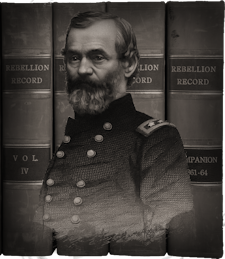February 13.—The Constitutional Convention, in session at Wheeling, Va., adopted this morning the following as a section of the article on the fundamental provisions of the constitution of the proposed new State of Western Virginia, with the understanding that this action should be a settlement of the vexed question:
“No slave or free persons of color shall come into this State for permanent residence after this constitution goes into operation.”
—This day an extensive fire occurred at Bowling Green, Ky., which resulted in the destruction of several large establishments. The soldiers worked hard, and finally succeeded in extinguishing the conflagration. Generals Johnston and Hardee, in person, directed the movements of the troops.—Lynchburgh (Va.) Republican, Feb. 16.
—In the United States Senate Mr. Davis introduced a series of resolutions declaring that the Constitution is the fundamental law of the Government, and that any attempt to abrogate the rights guaranteed by it would be inhuman and an outrage upon civilisation; that any rights and privileges suspended by the existence of the war be resumed at its termination; that no State, by any vote of secession, or any other act, can abrogate her rights or obligations, or the obligations of the United States, to preserve her people in all their rights, and guarantee to them a State republican government; that it is the duty of the United States to suppress the rebellion, to carry the “sword” in one hand and the “olive branch” in the other, and to restore the States as they were before the war.
—The Thirteenth regiment, Michigan volunteers, passed through Cincinnati, 0., to-day, en route for Kentucky.—New – York Times, Feb. 14.
—Springfield, Mo., was occupied by the National troops. At about three o’clock in the morning General Curtis’s army advanced in line of battle, and at daybreak the third division, headed by the Fourth Iowa, entered and took peaceful possession of the town. The rebel General Price had left at two o’clock the same morning, leaving over six hundred of his sick behind. Large quantities of forage wagons were also left. He had twelve thousand effective troops and fifty pieces of artillery.
—The Secretary of the Navy returned the thanks of the Department to Lieutenant Phelps, who commanded the recent gunboat expedition up the Tennessee River, destroying or capturing the rebel gunboats and stores, dispersing their forces, and breaking up their encampments.—(Doc. 35.)
—An expedition under command of Lieutenant William N. Jeflfers, U.S.N., left the mouth of North River, near Edenton, N. C., and proceeded to the mouth of the Chesapeake and Albemarle Canal, in North-Carolina, for the purpose of obstructing it, The proposed work was found to have been partially executed by the rebels themselves, some of whom were discovered engaged in sinking vessels across the canal. After driving off the rebels, the work was completed by sinking two schooners in the mouth of the canal and burning all that then remained above water.— (Doc. 41.)
—In the United States Senate the Treasury Note bill, with the legal tender clause, and the clause providing for the payment of the interest of the public debt in coin, was passed by a vote of thirty to seven.








